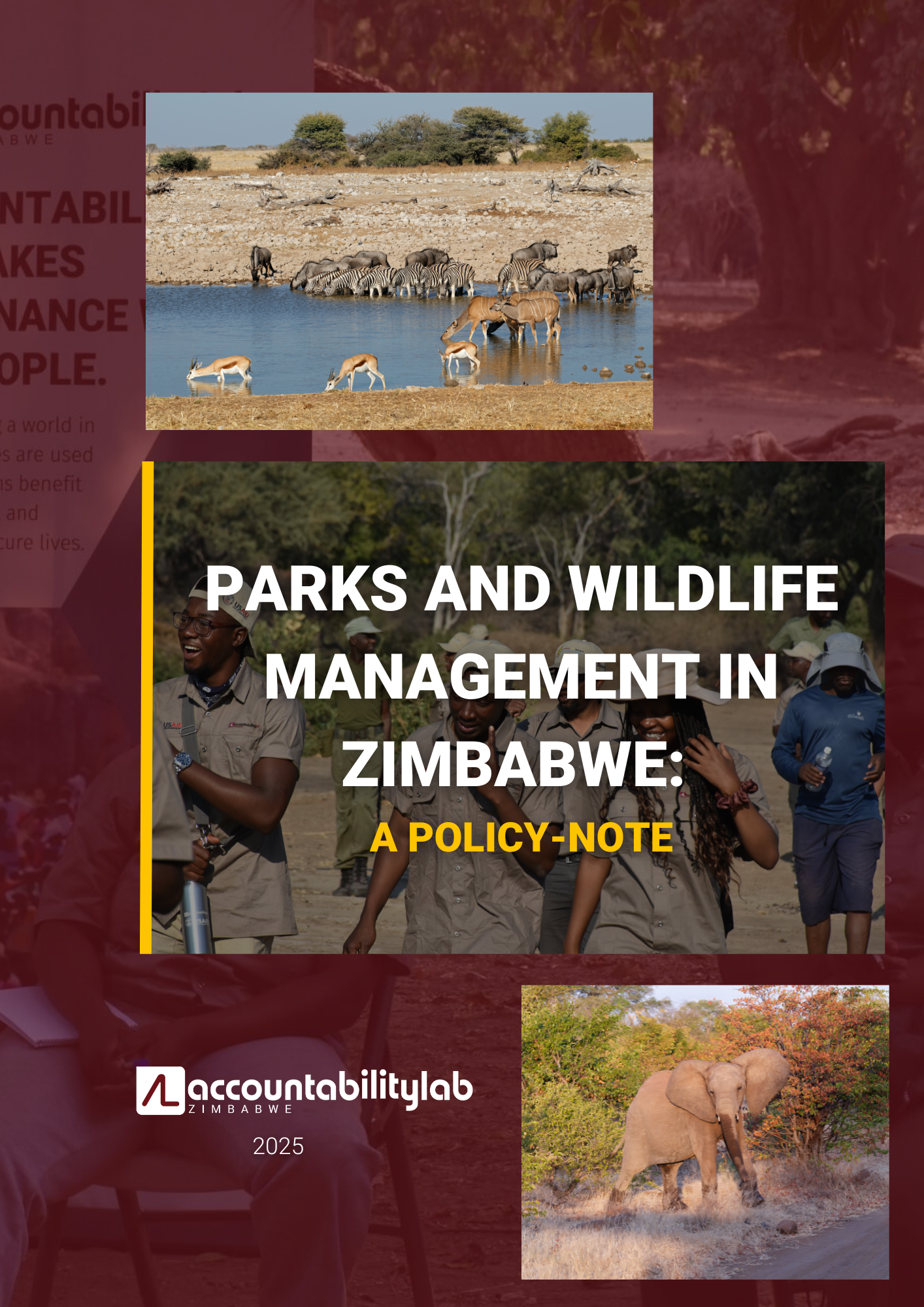NEWS

IN BRIEF
Zimbabwe’s natural resources, particularly its parks and wildlife, are crucial […]
SHARE
Zimbabwe’s natural resources, particularly its parks and wildlife, are crucial for biodiversity conservation and economic development. The Parks and Wildlife Management Bill, gazetted on April 19, 2024, introduces measures to empower local communities, improve conservation efforts, and establish mechanisms to address human-wildlife conflicts. Given the legislation, there is a compelling case for instituting governance measures that enhance transparency, accountability, and community benefit in Zimbabwe’s wildlife sector.
In this policy note, Accountability Lab makes recommendations to improve the governance of Zimbabwe’s parks and wildlife sector, ensuring that it serves both conservation objectives and the livelihoods of communities living adjacent to protected areas.
We recommend:
Community Participation and Benefit Sharing
- The establishment of a legal framework ensuring that revenues from wildlife resources are equitably shared with local communities.
- Adoption of a model similar to Namibia’s community-based natural resource management (CBNRM) program, where communities have direct control over wildlife management and benefit financially from conservation.
Transparency and Oversight Mechanisms
- Parliament should enact specific provisions that mandate regular reporting on revenue generated from wildlife-related activities and its distribution.
- Conservation authorities must publicly disclose information on hunting quotas, land use plans, and financial allocations to prevent corruption and mismanagement.
Strengthening Governance through Legislation
- The Parks and Wildlife Management Bill should explicitly define the oversight role of Parliament and civil society in wildlife governance.
- There should be clear stipulations ensuring the involvement of independent bodies to audit financial and conservation-related decisions.
Sustainable Investment in Conservation
- Revenue from wildlife and tourism should be reinvested in conservation efforts and local community development.
- The establishment of a Wildlife Sovereign Fund where a portion of revenue from tourism, hunting licenses, and carbon credits is allocated for long-term sustainability.
Equitable Distribution of Wildlife Resources
- The government should ensure that conservation policies do not disproportionately favor elite interests at the expense of local communities.
- Transparent mechanisms should be put in place to facilitate the fair allocation of hunting and land-use rights, ensuring marginalized communities benefit.
Read the full Parks and Wildlife Management Policy Note here.
